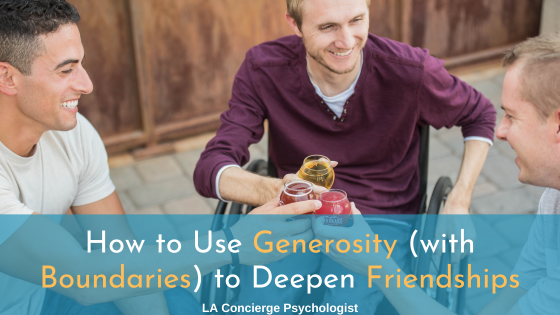What Is A “Twice Exceptional” Teen?
Is your teen gifted in some areas but challenged in others? Perhaps they are musically talented but extremely awkward in social situations. They might demonstrate high proficiency in math but struggle with reading comprehension or vice versa. As the parent of a smart but struggling teen, you may have come across the term “twice exceptional” or “2e” when searching the internet or speaking with your child’s teachers. Now you’re wondering what twice exceptional means and whether your teen meets the definition for this term.
If you’re looking for a formal, universally accepted definition of twice exceptional, you may be disappointed. The authoritative guide healthcare professionals use to diagnose mental conditions (The Diagnostic and Statistical Manual of Mental Disorders) does not offer guidance for determining whether a person is twice exceptional. In fact, it does not address the concept of being 2e at all.
If “twice exceptional” is not a formal disorder, what is it?
The term “twice exceptional” does not refer to a single condition but rather to the co-occurrence of multiple conditions. It describes people who are extraordinary not only in terms of their high intelligence but also in the way they experience and interact with the world. I like this definition from Dr. Michael Postma, a specialist in the educational needs of gifted children: “Twice exceptional” (2e) is the term used to describe intellectually gifted children with great potential for academic achievement who also have a learning disability or neurological challenge.”[1]
A 2e teen might be described as gifted, clever, or bright by those who know them well. The neurological differences and cognitive challenges of a 2e child might include autism, ADHD, learning disabilities, sensory issues, or a combination of conditions. A gifted teen’s co-existing condition(s) can prevent them from living out their full potential at school, in their careers, and in their personal lives.
3 Common Traits Of 2e Teens
Because every 2e child is unique, it is impossible to create a list of traits that apply to all twice-exceptional children. While one twice-exceptional child may show above-average aptitude in music or drawing, for example, another may be at their best when working with computers. Similarly, one 2e teen may struggle with social skills and another struggles with reading comprehension. Nevertheless, there are at least three common things we look for when trying to determine whether someone is twice exceptional:
1. They are either ahead of or behind their peers, depending on the task/subject.
The parents of a twice-exceptional child might worry that their teen is lagging behind their classmates. They might have received recommendations from the child’s school that their child should be held back a grade or placed in a special education class. In some cases, the adolescent may have received a diagnosis of autism, ADHD, or specific learning disorder.
At the same time, the teen may have impressive intellectual talents. Perhaps they learned to speak, write, draw, or use a computer at a surprisingly early age. They might also demonstrate problem-solving abilities, conceptual understanding, emotional sensitivity, empathy, or other aptitudes at levels at or exceeding those of most mature adults. The combination of being gifted in some respects but severely struggling in others may lead to uncertainty or disagreement about how to accommodate their needs.
2. They appear unwilling or unable to do things you think they should be able to do.
A teen that helps her younger sibling with his math homework should do just fine in algebra class, right? Most parents would think so. So why is it that her math teacher is constantly complaining of behavioral problems? If they are 2e, they may be gifted in math but at the same time struggle with sensory processing issues. Even if they are trying their best, they may be prevented from fulfilling their potential by a learning environment that is too bright, loud, or chaotic.
2e kids are sometimes at their best when they are at home, partly because they have access to one-on-one support from someone who knows them well. They may also have fewer distractions and social challenges to hold them back from learning at their own pace and exploring their creative interests. Their parents have likely witnessed their intellectual talents at home on many occasions, so they are surprised when their kids struggle at school. “My child loved this book and has been talking excitedly about it all week. He should be able to complete a simple book report on it and turn it in on time!”
3. They have unexplained behavioral problems.
Behavioral problems have many possible origins, including mental health issues. Many 2e kids have low self-esteem. This is especially true if they’ve been repeatedly told that they “should” be able to do things that they struggle with. They show such great potential in some areas of their lives that they are commonly accused of laziness when they fall short in others. The emotional damage caused by these disparaging comments can lead to discouragement and defensiveness that affects their behaviors.
Boredom can also lead to behaviors educators find problematic. When schools focus on students’ shortcomings rather than their strengths, 2e kids often find themselves stuck in environments that fail to challenge them. Having quickly absorbed the day’s lesson, a 2e teen will struggle to sit through their teacher’s repeated explanations while they wait for peers to catch up. Their resulting inattentiveness may be disruptive to other students—especially if they have ADHD—leading to behavioral issues.
If you’re looking for professional support, Dr. Jenifer Goldman is skilled in helping 2e kids. As our teen counseling specialist, she is especially skilled in addressing the social and emotional struggles of tweens and teens. Book a free 20 minute phone consultation to see how she can help.



